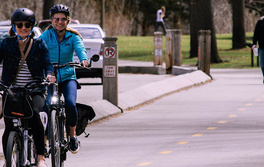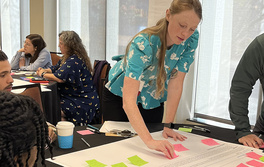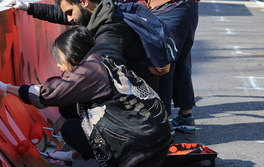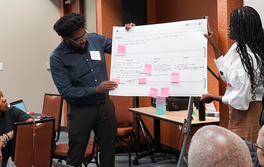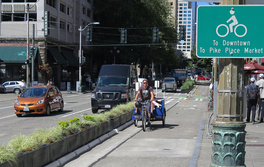
RELEASE: New Paper Introduces Method for Evaluating the Impact of Shared Micromobility on Job Access in Cities
RELEASE: New Paper Introduces Method for Evaluating the Impact of Shared Micromobility on Job Access in Cities
All Possible Commutes: How Micromobility and Realistic Car Travel Times Impact Accessibility Analyses Presents a New Approach to Modeling Access to Destinations in Cities
Washington, D.C. (May 10, 2023) — As shared micromobility, like bikes and electric scooters, becomes a component of many people’s commutes, cities are looking to better account for these modes when developing transportation programs and policies.
Accessibility analysis to measure access to destinations can be a powerful tool in evaluating how changes in transportation and land use affect different neighborhoods and socioeconomic groups. The conventional approach, however, relies on unrealistic assumptions about car travel and tends to omit newer modes, leading to inaccurate or incomplete results.
All Possible Commutes: How Micromobility and Realistic Car Travel Times Impact Accessibility Analyses is a new working paper from the New Urban Mobility alliance (NUMO) and Transport for Cairo that introduces an improved method for accessibility analysis that incorporates the availability of shared micromobility as well as realistic car travel times.
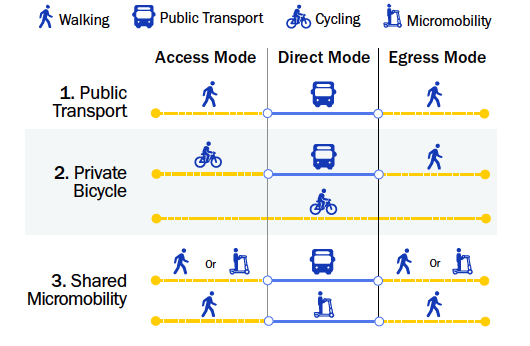
This approach enhances typical methods by accounting for traffic congestion and parking time. To enable this research, Mapbox and Uber provided real data on driving speeds.
The paper compares the results of case studies of four cities — Cairo, Mexico City, Minneapolis-Saint Paul and the San Francisco Bay Area — where accessibility analyses were conducted with and without the included methodological improvements.
Speaking on the choice of case study cities, Abdelrahman Melegy (he/him) of Transport for Cairo said, “this method is designed to use open data and also to work in low-data contexts, such as in the case of developing countries. We are also pleased to publish all the underlying code and datasets for any city or researcher to use.”
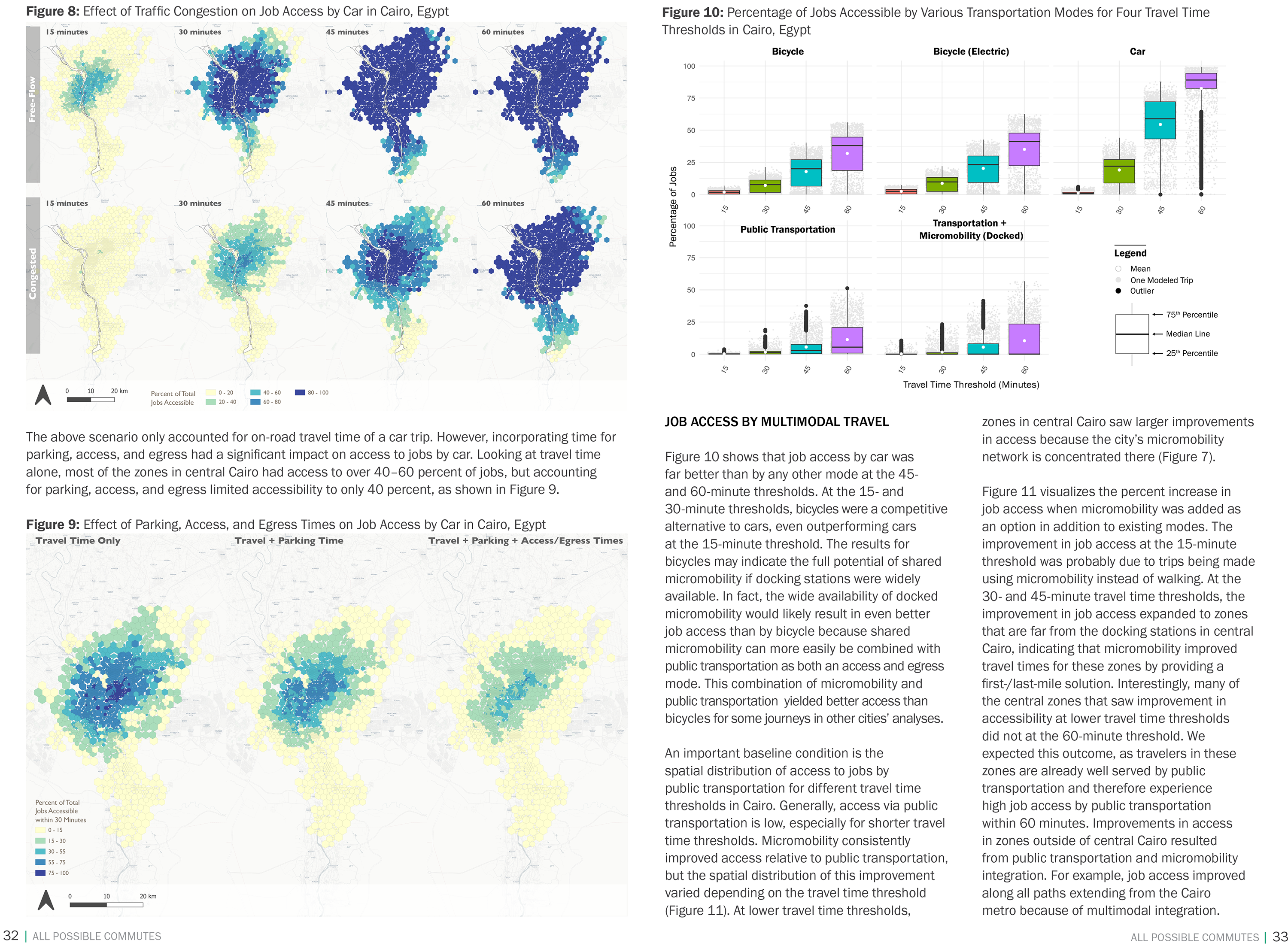
The case studies revealed a clear pattern: access to jobs using micromobility was competitive with cars for trips under 15 minutes, but competing with job access by car at 30-, 45- and 60-minute travel time thresholds required a combination of both micromobility and robust public transit. Additionally, accounting for parking, access and egress times resulted in lower, more accurate estimates of job access by car, especially for shorter trips.
Overall, these findings indicate that cities can best leverage micromobility travel to improve access to jobs if they also focus on integrating and enabling stronger connections between micromobility and public transit systems.
The paper was produced with support from the NUMO Research Collaborative, a collective of city decision-makers, research institutions and private companies working to accelerate research on new mobility, and the Institute for Transportation Development Policy (ITDP). It is based on a research proposal developed by ITDP.
“In 1961, Jane Jacobs called on us to ‘think of cities as problems in organized complexity — organisms that are replete with unexamined, but obviously interconnected, and surely understandable, relationships,” said D. Taylor Reich (they/them) of the Institute for Transportation and Development Policy. Reich proposed the topic of study and advised on research methods. “This study begins to examine micromobility not in itself, but as one component in the system of the city. The methods outlined help lay the foundations for a science of understanding cities as what they are: systems of organized complexity.”
All Possible Commutes: How Micromobility and Realistic Car Travel Times Impact Accessibility Analyses is available now here. Please direct all media inquiries to madlyn@numo.global.
NUMO is a global alliance that channels tech-based disruptions in urban transport to create joyful cities where sustainable and just mobility is the new normal. Founded in 2019 as an outgrowth of the Shared Mobility Principles for Livable Cities, NUMO convenes diverse allies and leverages the momentum of significant revolutions in mobility to target urban issues — including equity, sustainability, accessibility and labor — impacted by the shifting transportation landscape. NUMO is hosted by WRI Ross Center for Sustainable Cities. For more information, visit www.numo.global
Header image: Carlos F. Pardo/Flickr
